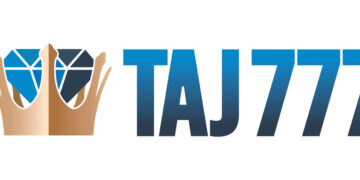Business travel is an essential part of modern corporate life, and effective business travel management can make all the difference between a trip that drives results and one that drains time and energy. Traveling for work requires a balance of preparation, focus, and flexibility. Whether you’re flying across the country for a client meeting or attending an international conference, staying productive while on the go ensures your efforts translate into tangible business outcomes.
Plan Ahead to Maximize Efficiency
Productivity during business travel starts long before you step on the plane. Strategic planning ensures you can focus on your objectives rather than logistics. Begin by aligning your travel itinerary with your work goals. Schedule important meetings during your peak performance hours and leave buffer time for travel delays or unexpected events.
Make use of travel management tools to centralize bookings, track expenses, and access itineraries in real time. Apps like TripIt, TravelPerk, and Expensify can help streamline your planning process. Having all travel details at your fingertips saves valuable time and reduces the mental load that comes with constant coordination.
Additionally, choose accommodations strategically. Select hotels that are close to your business meetings or conference venues to cut down on commute time. If possible, opt for accommodations with business amenities like high-speed Wi-Fi, dedicated workspaces, and fitness centers to support both your productivity and well-being.
Stay Connected and Organized Digitally
Being digitally organized is the cornerstone of a smooth business trip. Before leaving, sync all essential documents, presentations, and contacts to cloud-based platforms such as Google Drive or Microsoft OneDrive. This ensures that your files are accessible from anywhere, even if your laptop malfunctions or you’re working from a mobile device.
Use communication and project management tools like Slack, Microsoft Teams, or Asana to stay connected with your team. Regular updates and clear communication prevent delays and maintain workflow continuity while you’re away.
Carrying the right tech accessories also plays a role in your efficiency. A portable power bank, noise-canceling headphones, and universal adapters can turn airport lounges and coffee shops into makeshift offices. With the right setup, you can remain connected and productive regardless of location.
Create a Productive Travel Routine
Maintaining a structured routine helps combat the disorientation of travel. Business trips often come with erratic schedules and different time zones, which can impact focus and energy. Establish a daily rhythm that prioritizes your core work hours, rest, and meals.
Try to maintain consistent sleep patterns as much as possible. Jet lag can severely affect concentration, so use techniques like adjusting your sleep schedule a few days before departure or using light exposure to adapt to new time zones.
Incorporate short exercise sessions into your routine, even if it’s a quick walk or stretching session in your hotel room. Physical movement enhances alertness, reduces fatigue, and helps manage stress. A healthy body supports a sharp mind, which is crucial when you need to perform at your best during high-stakes meetings.
Optimize Downtime with Purpose
Downtime is inevitable when traveling—whether you’re waiting for a flight, commuting between meetings, or resting in your hotel. Instead of letting these moments slip by, use them intentionally.
Catch up on industry news, listen to business podcasts, or read professional development materials. Audio content is particularly effective for learning while moving, allowing you to stay informed without needing a desk setup.
If you prefer active productivity, use travel breaks for networking. Engage with fellow travelers or conference attendees. Building relationships can open new doors and lead to future collaborations. Even a casual conversation at an airport lounge can lead to valuable business insights.
Leverage Technology for Smarter Workflows
Modern technology can make your business trips far more efficient. Use automation tools to handle repetitive tasks like scheduling, expense tracking, or email responses. Virtual assistants such as Siri, Google Assistant, or Cortana can help you manage your calendar, set reminders, and even dictate quick notes.
Video conferencing tools like Zoom or Google Meet allow you to maintain communication with colleagues or clients even if you’re across the globe. This helps you stay connected to projects without needing to delay decisions until you return.
Expense management apps like Concur or Zoho Expense can simplify your financial tracking while on the road. Photograph receipts, categorize expenses, and sync them directly with your company’s accounting software to reduce post-trip administrative burdens.
Maintain Work-Life Balance on the Road
Constant travel can blur the line between work and personal time. Maintaining balance helps sustain long-term productivity and mental clarity. Avoid the temptation to overextend yourself with back-to-back meetings or late-night work sessions. Schedule personal downtime to recharge.
Many professionals find value in exploring their travel destination after work hours. Visiting a local restaurant, walking through city landmarks, or engaging in cultural experiences can reduce stress and enhance creativity. Allowing yourself moments of relaxation contributes to higher focus and satisfaction throughout your trip.
Don’t overlook mental wellness. Meditation apps such as Calm or Headspace can help you decompress after a long day. Even five minutes of mindfulness can reset your energy and prepare you for the next challenge.
Stay Healthy While Traveling
Health often takes a backseat during business travel, but neglecting it can hinder your performance. Stay hydrated, avoid excessive caffeine, and choose balanced meals over fast food. Pack healthy snacks like nuts or protein bars to prevent energy crashes between meetings.
Prioritize movement whenever possible. Take the stairs, walk to nearby destinations, or perform light exercises during breaks. Maintaining physical health helps sustain mental sharpness and keeps you in top form for business discussions and presentations.
Additionally, consider travel insurance and familiarize yourself with local healthcare options before departure. These small precautions ensure that you’re prepared for any health-related emergencies while away from home.
Reflect and Improve After Every Trip
Once your business trip concludes, take time to review what went well and what could be improved. Analyze your travel schedule, meeting outcomes, and how effectively you managed your workload.
This reflection process helps you fine-tune future trips. If a specific airline, hotel, or app made your experience smoother, incorporate it into your regular travel routine. Similarly, identify any stress points or inefficiencies and address them before your next journey.
Sharing insights with your team can also enhance organizational learning. When companies encourage feedback, they can continuously improve their travel policies and employee experience.
Conclusion
Staying productive on business trips requires a balance of smart planning, efficient use of technology, and a commitment to well-being. Each trip is an opportunity to combine professional growth with personal development. By establishing strong habits and leveraging digital tools, business travelers can turn travel time into an asset rather than a disruption.
Organizations that invest in structured business travel management services enable their employees to perform effectively, reduce stress, and achieve more while on the move—ultimately driving success from every journey.

















